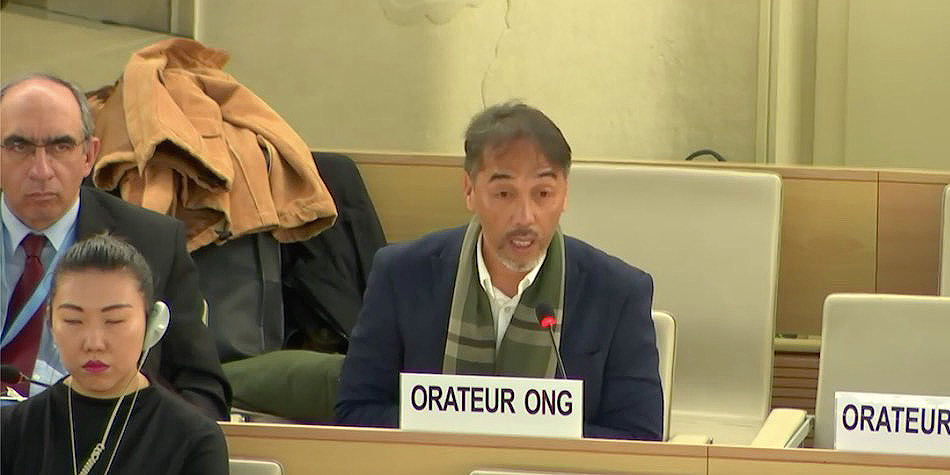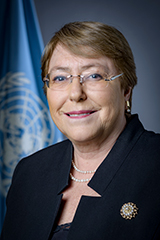The Rodrigo Duterte government’s amendment
to its petition to proscribe revolutionary groups as terrorists is proof that
it has a weak case against the Communist Party of the Philippines (CPP) and the
New People’s Army (NPA), a human rights lawyer said.
In a statement, National Union of People’s Lawyer president Edre Olalia said the government’s original petition filed in February 2018 is weak and is merely a move to railroad the legal process.
“[The]
amended petition by the government to proscribe the CPP-NPA is proof that the
original one was sloppy, shotgun and arbitrary against hundreds of individuals
and was designed to harass and threaten them,” Olalia said.
Last January 3, the Department of Justice (DOJ) filed the amended petition before Branch 19 of the Regional Trial Court in Manila.
Six hundred individuals listed as “terrorists” in the original
petition have been taken off but retained
CPP founding chairperson Jose Maria Sison; NPA national operations command spokesperson
Jorge Madlos; NPA’s Melito Glor Command spokesperson Jaime Padilla, National
Democratic Front of the Philippines-Negros spokesperson Francisco Fernandez; alleged
CPP-Visayas deputy secretary Cleofe Lagtapon; alleged CPP Mindanao Commission secretary
Antonio Cabanatan; alleged NPA-Mindanao leader; and alleged NPA-Mindanao
operations chief Myrna Sularte.
The amended petition no longer includes United Nations Environment
Programme 2018 Champion of the Earth awardee Joan Carling and five Baguio
activists like Jeanette Ribaya-Cawiding.
Cawiding, former chair of the Tongtongan ti Umili and coordinator
of the Alliance of Concerned Teachers (ACT), said the new petition removes them
from immediate danger posed by being labelled as terrorists, but said government
spying on non-government organizations remains as a threat to free speech and human
rights.
“This is a partial victory, but we cannot let our guard down,”
Cawiding said.
She points to the latest red-tagging of ACT and harassment of teachers
who are ACT members as proof that the threat against activists and government
critics will continue.
“Harassment has been continuous against progressive organizations,
like ACT, the delisting of the individuals named in the DOJ proscription does
not guarantee the protection of our rights and our safety because the Philippine
National Police and Malacañang are justifying their witch hunt in the context
of [Duterte’s] Executive Order 70,” Cawiding said.
EO 70, signed last December, directs the creation of a national task
force headed by the President and vice-chaired by the National Security Adviser
to end local communist armed conflict and pushed for localized peace talks.
The court earlier directed the DOJ to remove the names of Vicky
Tauli-Corpuz, UN Special Rapporteur for Indigenous Peoples Concerns and former
Baguio councilor Jose Molintas.
Molintas was also a former member of the UN Expert Mechanism
on the Rights of Indigenous Peoples (EMRIP).
Corpuz, Carling, Longid and Molintas are former leaders of the
militant Cordillera People’s Alliance (CPA), which Cariño helped establish as
an indigenous peoples’ rights group that opposed the Marcos regime.
Current CPA chair Windell Bolinget said strong protests pushed the
DOJ to amend its proscription petition.
But he said the threat does not end.
“They wanted the proscription of the CPP and NPA as terrorists by
focusing on few names. Once they are proscribed as terrorists, people they
suspect, vilify and attack as fronts and supporters will be linked and later
considered terrorists. This is the danger,” Bolinget said.
Still
dangerous
Olalia said that even with the amendment, the petition remains
dangerous to those earlier named.
“[The] present petition remains to be without legal and factual basis
and repackaged the old one in order to railroad the legal process. This will in
turn violate a slew of individual and collective rights not only for those who
remain in the list but many others who are maliciously identified, associated,
suspected or labelled,” Olalia said.
IFI Bishop Vermilon Tagalog, chair of the regional coordinating
committee of the Ilocos Network for the Environment welcomed the amended DOJ
petition but said “the removal of names does not guarantee their safety”.
“The mere existence of the DOJ petition remains a clear threat
especially with the insistent communist-tagging of Duterte’s administration of
activists and progressive organizations,” Tagalog added.
Tagalog said that the Human Security Act of 2007, the DOJ’s basis
for the filing of the proscription petition is not just directed against
“terrorists” but also to critics of the government.
“We call on
all environmental defenders to remain vigilant and steadfast in the fight
against efforts of the administration to impose its tyrannical rule and
clamped-down on our democratic rights.” #(Raymund
B. Villanueva/ Kodao and Kimberlie Olmaya Ngabit-Quitasol/Northern Dispatch)





